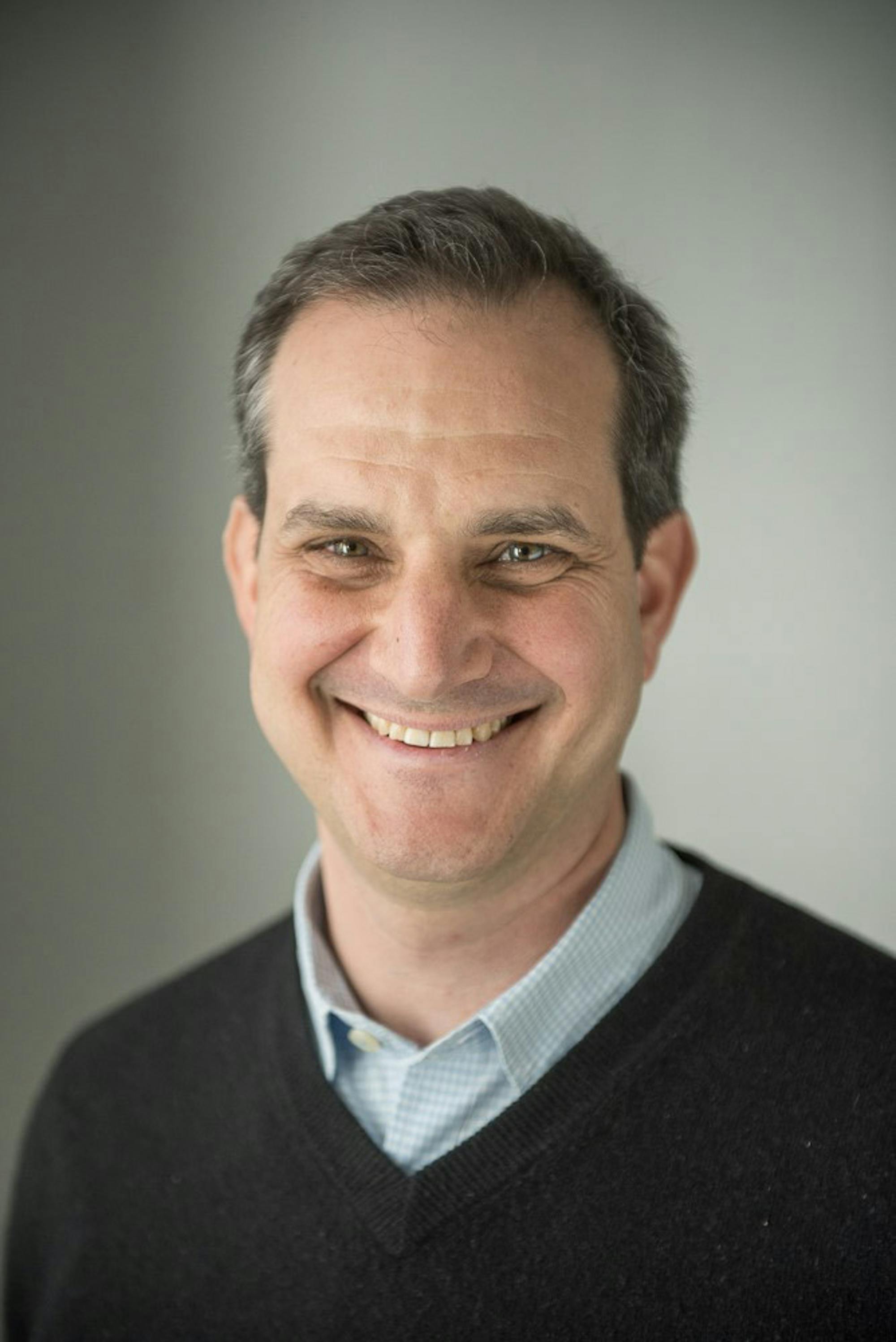Dano Weisbord will become the executive director of sustainability and chief sustainability officer on Oct. 24. He plans to further Tufts’ commitment to becoming a higher education leader in sustainability and climate matters across the university, bridging campus operations with education, co-curricular and research activities.
“It’s really exciting to come back to Tufts,” Weisbord said. “Tufts was … transformational for me, personally and professionally.”
Weisbord graduated from Tufts with a Masters of Arts in Urban and Environmental Policy after receiving a Bachelor of Fine Arts in Industrial Design from Rhode Island School of Design.
Weisbord comes to Tufts from Smith College, where he held the position of associate vice president for campus planning and sustainability and COVID-19 administrator. Over his 14 years at Smith, Weisbord served as director of the Center for the Environment, Ecological Design and Sustainability and was the college’s founding director of sustainability.
Tina Woolston, who has been the director of the Office of Sustainability since 2010, spoke about how sustainability programs at Tufts were assessed prior to adding the new position.
“In 2020 we invited the directors of sustainability from two high performing schools to do a peer review of sustainability at Tufts,” Woolston wrote in an email to the Daily.
These directors noticed that the Office of Sustainability’s ability to function is impeded by several factors; for one, the office’s mix of strategic thinking and operational responsibilities makes it difficult to focus on institution-wide planning.
“Operational responsibilities are things like running the recycling and waste reduction program, working on transportation demand management programs, etc.” Woolston wrote.
In addition, there is a lack of formalized connections to schools, campuses and departments, as well as education and research.
“We have been working on making changes based on these recommendations, including creating a new Sustainability Council, made up primarily of faculty and students, and moving the Recycling and Waste Reduction Supervisor position into Facilities Services,” Woolston added.
Executive Vice President Mike Howard discussed the importance of the university deciding to add this position.
“The university has had a long and accomplished record of commitment to sustainability, punctuated by President Monaco making it one of his top priorities during his tenure at Tufts,” Howard wrote in an email to the Daily. “Creating this position and filling it with someone of Dano’s caliber is a great opportunity for the university to continue to advance as a leader by further integrating academics and operations.”
Woolston echoed these thoughts while highlighting the importance of all people fighting against climate change. “The creation of this position demonstrates the commitment by the university to make Tufts a truly outstanding institution for students that want to engage in one of the most urgent issues of our time: addressing climate change and its impact on all peoples of the Earth, in particular the most vulnerable and least equipped populations,” Woolston wrote.
The addition of the chief sustainability officer position aims to better connect the sustainability work being done on campus with research and education. Woolston researched and recruited sustainability professionals from schools around the world that had successfully merged the two.
“We received interest from stellar applicants from both the US and abroad and after an extensive interview process (the top candidates came to campus and met with senior leaders, such as the provost, deans and vice presidents) it was decided that Dano was the best fit for the position,” Woolston wrote.
She then emphasized the importance for Tufts students to conceptualize the impacts of climate change.
“The goal is for all students at Tufts to understand climate change, its impacts, and the road to a more sustainable society; train those who wish to work in related fields with exceptional skills; and develop research and scholarship that assists policymakers, engineers, and others to successfully tackle the challenges of the future,” Woolston wrote. “And to do all this on a campus that reflects its values.”
Howard stated the importance of Tufts in becoming a future model for sustainability.
“[Our] Office of Sustainability is small in comparison to peer institutions, and the addition of this role will give it the capacity to advance a university-wide vision and strategy for sustainability and – importantly – work closely with faculty to leverage their leadership and excellence,” Howard said.
According to Woolston, Weisbord will focus on creating connections and mechanisms for a comprehensive sustainability strategy for the entire university. This will include working with the Sustainability Council to refine the sustainability draft vision, key principles, goals and strategies at Tufts that were completed in April.
Weisbord envisions interacting with the Tufts community to gain a better sense of campus culture. He notes the value of conversing with student groups who may not resonate with topics of climate and sustainability.
“I’m curious about [the ways] people connect — or maybe the ways that they don’t connect,” Weisbord said. “That [comprises] the issue of what it means to be sustainable at Tufts and making that legible to most everyone.”
Despite the chaotic state of the world, Weisbord emphasized seeking hope and positivity in our future.
“I think [hope] enables students, then, when they graduate — or even before they graduate — to go change things,” Weisbord said. “It’s really hard when you feel dispirited to go make change.”
He reflected on the university’s potential for greatness, wondering, “What is Tufts’ unique offering to the challenges of global sustainable development?”
“I don’t know what the answer to that is yet,” Weisbord said. “But I think, given who Tufts is and what makes up the institution, it’s going to be fun to figure that out.”






